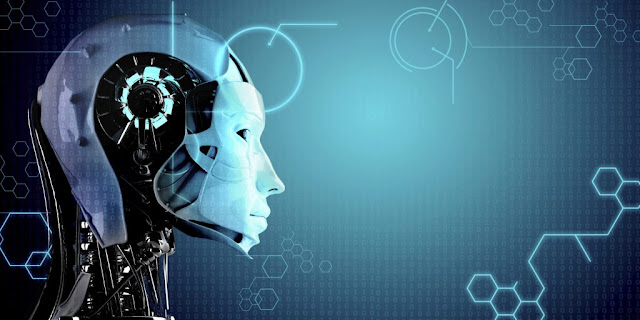Vartika Malik
14:07
0
 |
| Image Source: https://www.getapp.com |
Language Perception
Artificial
intelligence is the scenario when a machine mimics the cognitive functions of
human minds. Natural
Language Perception (NLP) is a basic function of AI. It has successfully
displayed the abilities to understand natural language from speech and written
forms. But NLP requires very intensive training for the systems implementing
it.
A newer and better model of language perception in
AI is self-training. Now, self-training and development does not mean that the
AI is developing its own new languages; though it may in the future. It simply
means that the AI follows unsupervised learning strategies to develop better
means of communication that do not necessarily follow the grammar rules of
natural human languages.
Google Neural Machine Translation
The base of language self-development
lies in the Google Neural Machine Translation System, a part of the Google
Brain project. GNMT was deployed in Google Translate in 2007 and has been
successfully in use since then.
The main feature of GNMT is that it works with entire
sentences rather than individual words. It basically treats sentences as
cluster sets, and similar phrases of languages tend to fall in same clusters. It
generates the data sets by encoding the semantics of the
sentence, rather than by memorizing phrase-to-phrase translations. The most radical
advantage of this methodology was that it enabled Google Translate to convert
phrases in languages for which it was not trained.
It led to many beliefs
that the system converted the languages into an incomprehensible intermediate
language that it used to translate into untrained languages. However, it
actually works by self-training the system using existing similar and
coinciding data sets
The Facebook Chat-bot
 |
The issue of self-development was brought in focus when a research experiment paper was published by Facebook AI Research Lab. It was regarding a Facebook AI engine that was discontinued when it communicated using language semantics that did not follow natural language rules and were therefore, beyond human understanding.
Researchers at Facebook AI
Research Lab discovered that two chat bots had developed new semantics to ease
their communication which could not be understood by humans. This phenomena
came to notice when the bots were challenged to negotiate with each other over
a trade, attempting to swap goods of different values. The bots were
instructed to work out how to negotiate and improve their bartering as they
went along. But no specific instructions were given as to use comprehensible
English, allowing them to create their own 'shorthand'.
Facebook suspended the experiment
when it did not behave in the required manner. The programs were not shut
down because the researchers had panicked, as has been suggested
elsewhere, but because they were intending for them to behave differently. The
company chose to shut down the chats after the successful completion of the
experiment because the project objective was in developing bots who could talk
to people, and the programs had deviated from the aim. It is quite possible
that the bots would be reprogrammed to bring them back on track.
 |
| Image Source: https://www.orangemantra.com |
The
media hype over these programs however had created unrealistic and fearsome scenarios.
Incomprehensible digital languages reminds us all of the dystopian fiction
scenarios like SKYNET, TRON etc. where AI develops its own mind with much
greater potential than humans, and then tries to wipe out the human race. In a
list of circumstances that could annihilate the human race, super-intelligent
killer robots rank quite high according to common perception.
Even in
academia and scientific circles, a growing number of AI experts are voicing
that humans will eventually create an artificial intelligence that can think
and function beyond our own capacities. The general trepidation about AI
is that it would take off on its own and re-design itself at an ever increasing
rate. Humans, who are limited by slow biological evolution would not be able to
compete, and would be superseded.
Nothing
so drastic has happened yet, or even majorly implicated; but the indications are
ever increasing.
Reference Reading:






































